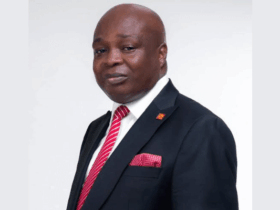Here are 12 economic milestones Tinubu’s reforms have achieved

President Bola Ahmed Tinubu, on Wednesday, October 1st, during Nigeria’s 65th Independence anniversary national broadcast, said his administration has achieved 12 economic milestones in just over two years of sweeping reforms.
The president, who assumed office in May 2023, said his government inherited a near-collapsed economy caused by decades of fiscal policy distortions and misalignment that had impaired real growth.
But he insisted that the “painful but necessary decisions” of subsidy removal, foreign exchange unification, and fiscal tightening have begun to yield measurable gains.
“Less than three years later, the seeds of those difficult but necessary decisions are bearing fruit,” Tinubu said. “The worst is over, I say. Yesterday’s pains are giving way to relief.”
Here are the 12 economic milestones the president listed in his address.
Record-breaking non-oil revenue
Nigeria attained “A record-breaking increase in non-oil revenue, achieving the 2025 target by August, with over ₦20 trillion. In September 2025 alone, we raised ₦3.65 trillion, 411% higher than the amount raised in May 2023,” Tinubu said.
Fiscal health restored
The president noted that the debt service-to-revenue ratio, once a staggering 97%, has now dropped “to below 50%. He also confirmed that the government has paid down the infamous ‘Ways and Means’ advances that threatened our economic stability and triggered inflation, while savings from subsidy removal have been channelled into education, healthcare, and infrastructure.
Stronger external reserves
“Our external reserves increased to $42.03 billion this September—the highest since 2019,” Tinubu announced, describing it as a buffer that has strengthened investor confidence.
Higher tax-to-GDP ratio
The country’s tax-to-GDP ratio rose from under 10% to 13.5%, with a new law expected in January 2026. “The tax law is not about increasing the burden on existing taxpayers but about expanding the base… and providing tax relief to low-income earners,” the president clarified.
Trade surplus achieved
For the first time in years, Nigeria is consistently exporting more than it imports. “We have recorded a trade surplus for five consecutive quarters. Nigeria’s trade surplus increased by 44.3% in Q2 2025 to N7.46 trillion ($4.74 billion), the largest in about three years,” Tinubu stated. Non-oil exports now account for 48% of trade compared to oil’s 52%.
Oil sector recovery
Oil output has climbed back to 1.68 million barrels per day from barely 1 million in May 2023. Nigeria also refined petrol locally for the first time in four decades and became “the continent’s leading exporter of aviation fuel.”
Naira stability
After years of volatility, Tinubu said, “The Naira has stabilised from the turbulence and volatility witnessed in 2023 and 2024. The gap between the official rate and the unofficial market has reduced substantially, following FX reforms and fresh capital and remittance inflows.”
Social investment for the poor
Under renewed social safety nets, “N330 billion has been disbursed to eight million households, many of whom have received either one or two out of the three tranches of N25,000 each,” the president confirmed.
Solid minerals boom
Coal mining, which had declined by 22% in Q1, surged by 57.5% in Q2 2025, making solid minerals one of Nigeria’s fastest-growing sectors.
Infrastructure expansion
Tinubu said transport infrastructure is expanding rapidly: “Rail and water transport grew by over 40% and 27%, respectively. The 284-kilometre Kano-Katsina-Maradi Standard Gauge rail project and the Kaduna-Kano rail line are nearing completion, while the Lagos-Calabar Coastal Highway and Sokoto-Badagry Highway are progressing.”
Improved investor confidence
According to the president, Sovereign credit rating agencies have upgraded their outlook for Nigeria, recognising our improved economic fundamentals. “Our stock market is experiencing an unprecedented boom, rising from an all-share index of 55,000 points in May 2023 to 142,000 points as of September 26, 2025,” he said.
Interest rate cut
Tinubu highlighted a monetary policy shift: “At its last MPC meeting, the Central Bank slashed interest rates for the first time in five years, expressing confidence in our country’s macroeconomic stability.”









Leave a Reply